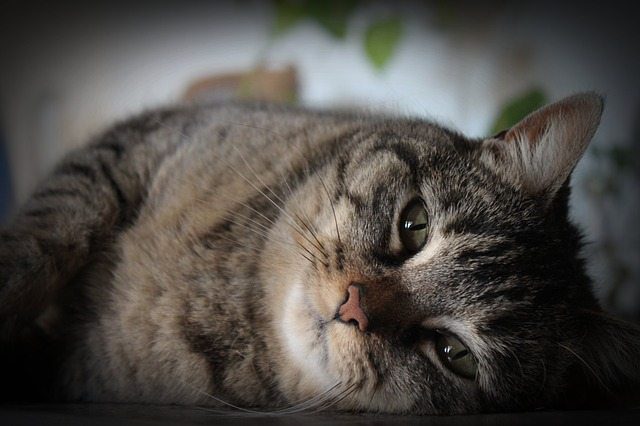Plants provide the necessary nutrients your body needs. However, it’s not the only way you can benefit from the positive effects of plants for your health.
According to a NASA, keeping plants inside your house can help remove at least 87 percent of toxins in the air. Studies have also shown that when you fill your house or office with indoor plants, you can experience a boost in productivity, energy, and mood by 15 percent.
Indoor plants, therefore, aren’t just for aesthetic and beautification, as it can impact your health and well-being. So, here are some of the best plants you should consider putting inside your home or workplace.
Here Are 13 Best Plants For Your Health That Are Easy To Keep Alive
“It is health that is real wealth and not pieces of gold and silver.” – Mahatma Gandhi
1. Garden Mums
Garden mums or chrysanthemums usually bloom with colorful flowers in the fall season. They generally require low light in order to grow. However, if you want the flowers to bloom well, set the pots in the warmer parts of the room where there’s good light and circulation.
It’s crucial for garden mums to receive water regularly as they can easily fall prey to fungal issues if not nourished well. This plant also needs fertilization at least once a month but won’t require plant food during the winter season.
2. Golden Pothos
The NASA clean air report from 1989 has this plant on its list of effective air purifiers. The golden pothos can help you sleep better if you place a pot in your bedroom. This is also perfect for newbies who are still discovering their green thumb, as this plant is hard to kill but easy to grow and maintain.
- This plant typically grows in temperate climates, as well as tropical and sub-tropical regions.
- Because of its large leaves and lovely shade of green, the golden pothos is often placed as decorations in public spaces where it can grow widely.
- Indoors, this houseplant can grow to a maximum of two meters (six feet) in height but its leaves won’t spread out. It also doesn’t require direct natural sunlight.
- It can thrive in a room with a temperature of 62 to 86°F (17 to 30°C) and it will remain healthy even with irregular watering.
- Some people also put golden pothos inside aquariums. It may effectively remove air pollutants like benzene, formaldehyde, trichloroethene, toluene, and xylene, as per a study on the journal Atmospheric Environment.
3. English Ivy
The English Ivy is commonly cultivated as an ornamental plant for covering walls in public buildings. It’s also great for indoor use. One of its positive effects is for purification, especially if you live with someone who is sensitive to cigarette smoke.
- This plant is highly recommended for those with asthma, as per a study in the ProEnvironment journal.
- The English Ivy thrives under indirect light but it should be watered regularly.
- Its soil should never dry out so that the leaves do not wilt and the plant doesn’t die.
4. Peace Lilies
Peace lilies absorb the toxic compounds in the air, such as the elements that computers and printers emit in your workplace. Known as the “closet plant,” they can thrive with little direct sunlight so it’s great for those who live in an apartment. You also don’t need to water this houseplant much. In fact, overwatering can kill it more quickly than under watering.
Its white flowers and dark green leaves can beautify any room in the house. However, since the leaves are wide, it may sometimes be a dust magnet. You can simply wipe the leaves with a damp cloth at least once a month or let water from the sink run over it at least once a year.
5. Bromeliads
Bromeliads offer a bright and positive ambiance for any room. It grows blooms in different shades of pink, red and yellow. It also purifies the air as it absorbs 90 percent of benzene that’s found in paint, detergents, and glue.
These colorful plants require little maintenance and care, so it’s popular as a decorative element for the household or the office. Bromeliads also don’t need to be exposed to the sun directly. If you’d like it to bloom well, however, you can take its pot out in the sun for a few hours.
6. Ferns
If you have a dry atmosphere inside your house or office, then bring in potted ferns to increase the humidity. Although this plant is tolerant of drought, it is better to regularly water ferns so that its leaves always look their best. Otherwise, it will grow to look ratty and pruned if it doesn’t get enough water. If possible, spray mist on the leaves every day.
Ferns also love to be partially exposed to the morning sun. These plants have been on Earth for over 70 million years and they are a vastly diversified species found nearly everywhere. The best types of ferns for indoor use are the Adiantum, Blechnum, Davallia, and Dryopteris.
7. Snake Plant
The most ideal plant to put inside your bedroom is the snake plant.
- While most plants release oxygen and absorb carbon dioxide during the day, the snake plant uniquely does this at night so you get a clean air boost while you are sleeping.
- You’ll need at least six to eight pots of these plants around your bedroom.
- The snake plant is also called the mother-in-law’s tongue due to its shape.
- It is decorative.
- It also contributes to the humidity of the room, which benefits your skin and eyes.
8. Red-Edged Dracaena
While the red-edged dracaena can grow up to 15 feet tall, it can still be an ideal indoor plant. If you have rooms with high ceilings, this can be the perfect decoration. This plant resembles a palm tree with its long and textured leaves. The red-edged dracaena lends a pop of color to any room and its ribbon-like leaves make it look very distinctive.
This houseplant also clears the air from formaldehyde, trichloroethylene, and xylene.
- Place at least two or three pots for every 100 square feet of a room to help neutralize the air better.
- Keep the red-edged dracaena’s soil fully moist with water and fertilize it once a month so that its leaves look healthy.
9. Philodendron
The Philodendron’s deep green heart-shaped leaves make this plant a popular choice for indoor decoration. It can also make a difference in health, as it absorbs the xylene around the air that comes from gasoline or paint thinners.
This houseplant is fairly easy to grow and keep indoors without fail. It can thrive under well-lighted spots but it can also tolerate areas with low light. You will not need to fertilize this plant but you will have to water its soil now and then.
10. Spider Plant
Here’s another plant that’s great for fighting the pollutants in the air. Spider plants absorb 90 percent of carbon monoxide that’s emitted from the car engine or cigarette smoke.
Spider plants are also ideal for busy homeowners and beginners who might forget to water the plants, as this is tolerant and adaptable to different conditions.
- The spider plant needs watering only once a week and won’t require direct sunlight.
- Place its pot next to a window in the east or north side of a room so that it lasts longer.
11. Aloe Vera
Aloe Vera has a lot of positive medicinal properties, so it might be handy to grow the plants in your house. It can soothe burns and heals cuts or wounds when rubbed or applied.
Aloe Vera also keeps the air quality of your indoor rooms in check. If there are too much pollutants, the leaves develop brown spots.
- This plant loves bright light though it doesn’t need to be directly under the sun.
- Some prefer to keep Aloe Vera indoors during the winter but take the pots out during the summer.
12. Bamboo
Most often associated with good luck and good fortune, the bamboo is also good for the health for its air cleansing properties.
It’s easy to grow bamboos indoors. You just need to cut its roots once in a while, especially if you notice the roots turning black. This plant grows in lots of water, which will require weekly replacement, as dirty water may kill the plant over time.
- Use a dark vase or glass instead of a clear vase to place the bamboo so that the light won’t penetrate the water and encourage the growth of algae.
- Bamboo may also grow in moist, potted soil. You’ll know its roots are healthy if its red, so don’t worry if you see these on your pot or vase.
13. Ficus
Ficus are great at absorbing odors and reducing the toxic substances in the air, which effectively promotes health. If you’ve got a room with a faint smell of cigarette smoke or smoke from cooking food, then a ficus plant will do wonders.
Place the plant in a room where there’s plenty of natural light and water it frequently so that its leaves will grow abundantly. This plant thrives better in rooms with higher temperatures and humidity level.
Final Thoughts On The Best Plants For Your Health
If you’re not so sure about the quality of natural light in your room then take note of the following: south-facing rooms always have high light coming from its windows. The rooms facing north, east or west, on the other hand, offer low light.
Carefully pick plants that are most ideal for the room’s condition. If the room has no windows at all, such as your office space, the indoor plants can still thrive under artificial light that has been turned on for at least 12 hours.
For the most part, all of these plants are easy to grow and care for. They also positively impact your health and the room’s air quality. It might also help to put an air purifier in the room to double the plants’ benefits. However, some plants can be toxic for house pets, so train your dogs not to chew on them.
https://www.youtube.com/watch?v=GB9mj_BHCGc










